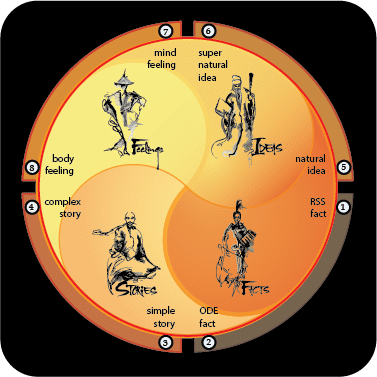What are Some Debates Surrounding the Scientific Method?
Just a few “brief” thoughts; questions, really; meant only to stimulate a respectful dialogue. I love science and scientists. So please, let’s do our best to emulate the great scientists by remaining curious and open minded.
[1] The Scientific Method lacks of a scientific definition: We tend to think of the Scientific Method as clear and precise, a protection against the failures of pseudoscience. Yet were you to Google, “Scientific Method,” you’d find this “method” lacks a clear and precise definition. To me, this is downright weird. And unscientific. How should we define the Scientific Method? Can we even do this?
[2] The lack of an actual method for defining terms used. The current Scientific Method includes no specific advice as to how we should define terms used. In lieu of this, scientists generally define terms similarly to how lexicographers define words in dictionaries; as descriptions of single points. Unfortunately, doing this can lead to all manner of problems. For example, look up the word “fact,” surely one of the mainstays of doing science. Most dictionaries define a fact as something that is true. They then define truth as something that is a fact. Obviously, this defines nothing. Moreover, as the title of Ludwig Fleck’s 1935 monograph, “The Genesis and Development of a Scientific Fact” states, “scientific facts” get born and then change over time. Again, this seems weird and worse; it appears to be a serious flaw in the method. So can we define facts in such a way as to make them scientifically clear and certain?
[3] The lack of a reliable system of real world measurement. A defining characteristic of real world things is that, as Heraclitus said, “you can’t step into the same river twice.” In other words, while we can forego change in theory, in the real world, change is a constant. Somehow science ignores this aspect of nature and treats measurement as a statistical value. Worse yet, despite the obvious value in statistics as general guides, science often fails to live up to the obvious: that statistics cannot predict real world, individual cases. This pretending seems counter to all that is scientific. Why does it not get addressed? More important, why do we not have a math that addresses this lack?
[4] The preference for linearity as a measure of truth. The only reliable real world repetitions are fractal patterns. Clouds, steam, acorns, trees: five year olds can identify these patterns with 100% certainty. Yet the current Scientific Method relies on linearity, not fractility, as the only proof for truth. Indeed, the more exactly an experiment repeats, the more this outcome is trusted. The real problem here is that this then constricts experimental design. Experiments get designed so as to lead to linear outcomes. My question is, shouldn’t this flaw be addressed when we all know there are no straight lines in nature?
